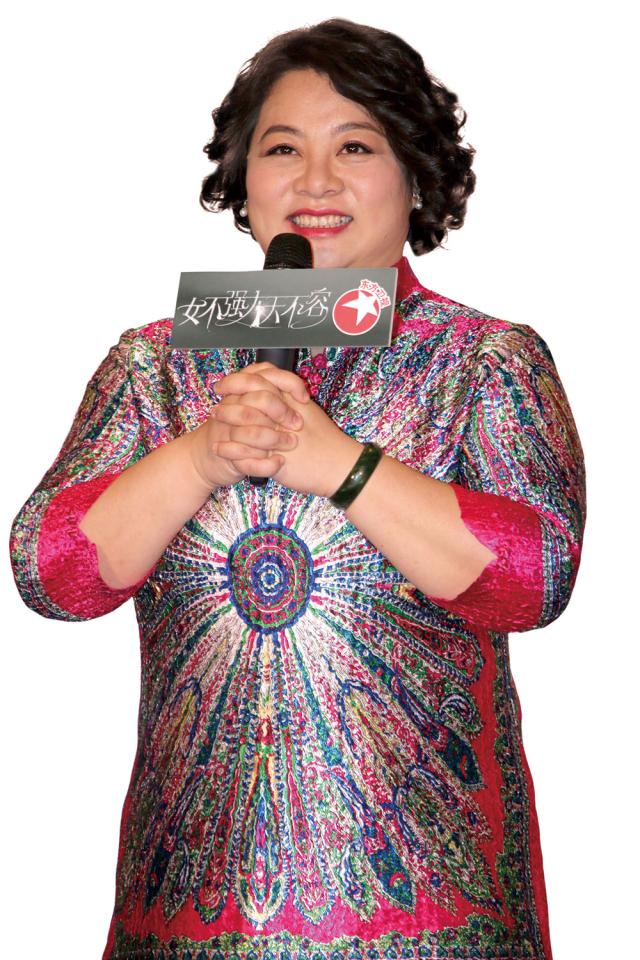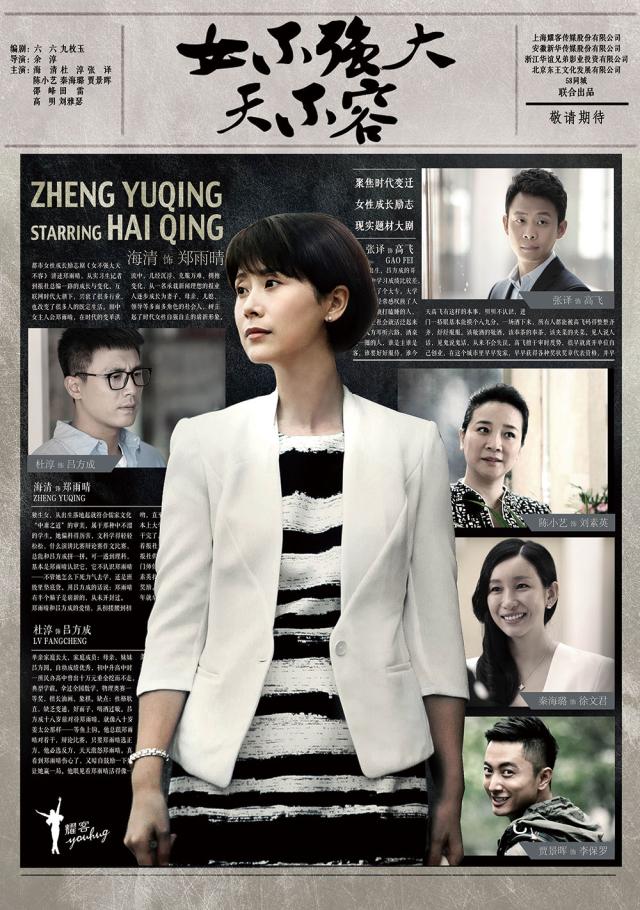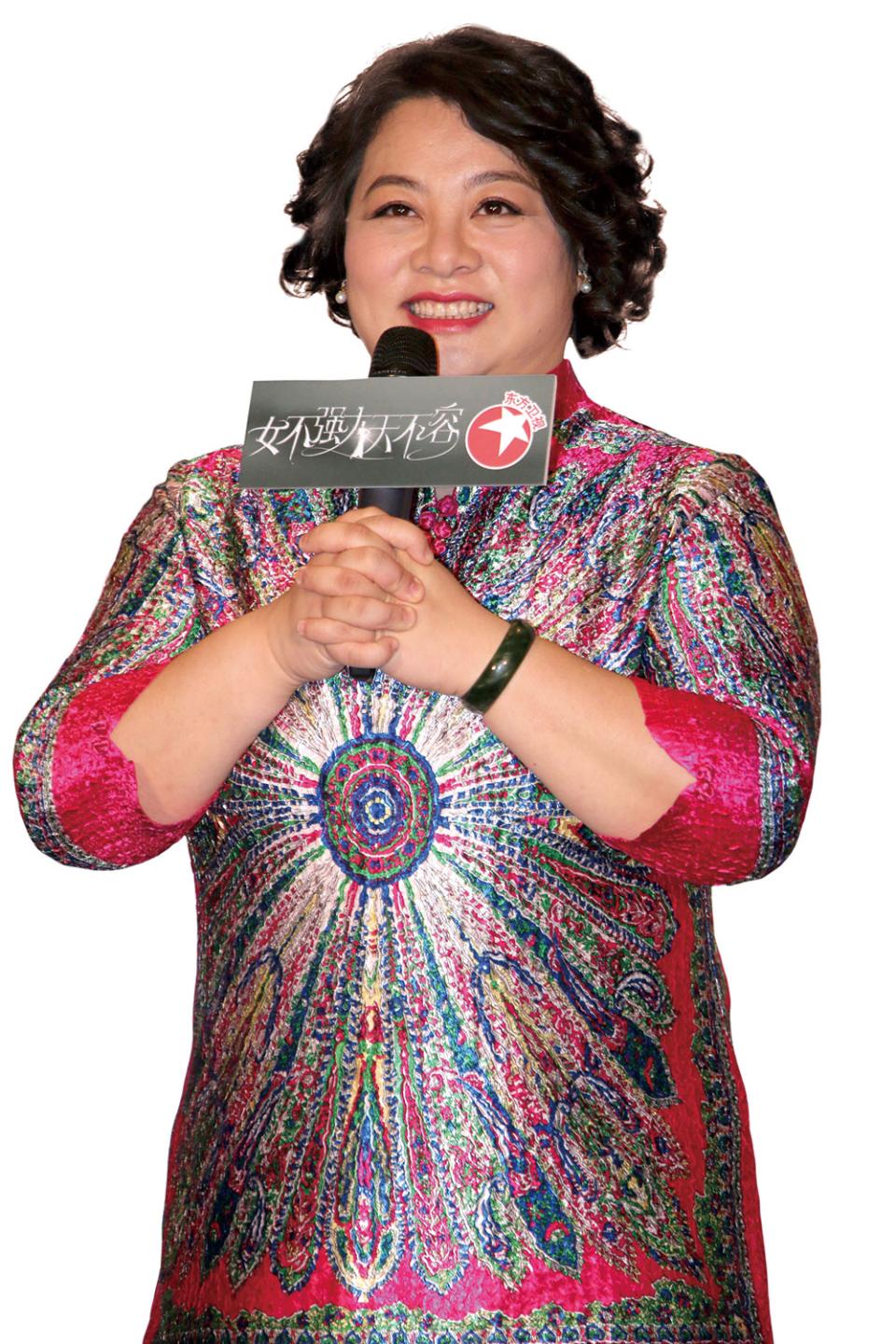Liu Liu has built her career as one of China’s most popular novelists and TV writers through her skill as a shrewd social critic with a feminist bent

Photo by Zhang Hongwei
“Don’t forget to touch up my face a bit afterwards!” Liu Liu jokingly said to a fan who asked to take a selfie with the author at a recent book signing in Xi’an, Shaanxi Province.
She spoke at the event in a high-pitched, quick tone, peppering her remarks with astute quips and explosions of laughter during which she’d slap the table with excitement.
Her writing, filled with humor, wit and insight, has charmed readers across the country. Critics regard her as a representative of the “third generation” of female Chinese writers who have lived abroad, after the renowned Eileen Chang and Hong Ying.
Liu’s novels typically explore themes of marriage, family dynamics and socially sensitive issues. Several of her books have been adapted into successful TV series. The Hunan TV show based off of her novel Snail House, which aired in 2009, became one of the most influential shows of recent decades and sparked heated debates on sensitive issues, such as megacities’ skyrocketing property prices, corruption and the phenomenon of numerous officials having affairs. Most recently, her novel Heaven Won’t Forgive Idle Women ( hereafter referred to as Heaven) was adapted into a TV show of the same name that premiered May 31.
Liu does not focus solely on feminist themes in her writing, although many have pigeonholed her as an author who only focuses on women’s rights. She is concerned about a wide range of social issues. As an astute social critic, Liu narrows in on the pressure points of contemporary society and weaves analysis and observations into her work.
Observer
“In a country where humanity’s base instincts cannot be properly restricted and law fails to aid, heaven won’t forgive idle women,” Liu wrote in the line that inspired the title of her latest novel and TV show.
Many questioned this title, including the TV show’s leading actress Hai Qing, afraid that it sounded too blunt and extreme. But, as one of the show’s producers and writers, Liu insisted on using it, for she believes “it reflects exactly the current status of the lives of Chinese women.”
Heaven tells the story of Zheng Yuqing, who begins the novel as an intern at a newspaper and eventually becomes the head of the company. The protagonist represents the large majority of Chinese women who struggle to cope with constantly playing multiple roles: boss, employee, wife, mother, daughter and daughter-in-law.
The core of the story, as Liu told our reporter, lies in women’s personal growth. She intends to encourage her female readers and viewers to be or become strong enough to support themselves. “Only when you are strong can you have the power of choice; when you are weak, you can only be chosen,” she said.
She added: “Women should never draw themselves into the trivialities of domestic life and give up the right to work. Only through ceaseless personal struggle and cultivation can a woman avoid the fate of being pitied as she ages.”
Yet when Liu was young, she never envisioned becoming a strong willed career woman. Before she became Liu Liu (her pen name), she was Zhang Xin, a girl who had long harbored a dream of domestic life. “Finding a man who loved me and establishing a happy family used to be my only expectations in life,” she said.
Failing to get into her ideal university was her first major life challenge. She decided to major in international trade, but she lacked a clear career plan, so after she graduated she dabbled in several different jobs, none of which lasted very long.
She married when she was 24 and moved to Singapore in 1999 so her husband could start studying for his PhD. With no official work to take on and no child to attend to, Liu spent most of her time surfing the Internet at home. This was how her online writing career began.
When asked about this early stage of her life as a writer, she called herself “an idle housewife wandering online.” She gave herself a pen name, “Liu Liu,” which literally means “six six” but sounds exactly like “idly wandering” in Chinese.
As problems emerged in her own marriage, she started to meditate on female independence and the nature of marriage. Writing became a tool through which she could “find answers and solve problems” in her own life.
She has frequently drawn on personal challenges when writing her books. “During different phases of my life, I encountered different questions,” Liu said. “I always tried to find answers to those questions through writing.”
Her first two books were mainly centered around marital and domestic conflicts and were inspired by problems she had in her own marriage or had heard about from other women.
She published her first novel, Wang Gui and An Na, online in 2003. It immediately earned her a following. The titular characters are a married couple, the proud and refined Shanghainese wife, An Na, and her mild-mannered, country-born husband, Wang Gui. In the book, Liu demonstrates how people with opposing values, habits and tastes can learn to be with one another – they quarrel and fight, but they also embrace and support each other. Liu’s humorous, natural and accessible writing style, as well as her detailed and authentic portrayal of married life, won over many readers.
Liu next turned her attention to the complex relationship between Chinese mother-in-laws and daughter-in-laws. She began writing her second book, Double-sided Tape, when she was seven months pregnant. The book depicts an unhealthy relationship between a motherin- law and daughter-in-law that becomes the cause of endless family battles and ends in tragedy. The book’s title is a metaphor that deLiu Liu scribes the role the husband plays between his wife and his mother, a piece of tape that holds two adversarial family members together.
The book that truly brought her nationwide recognition and made her one of China’s most popular writers was her third effort, Snail House, which was published in 2007. The term “snail house” in modern- day parlance refers to a tiny, uncomfortable living space. In this novel, Liu stepped out of previous family-driven subjects and focused on more large-scale and sensitive issues: soaring housing prices, the hordes of people who are “slaves” to their mortgages and corrupt, high-level officials who are married but having an affair on the side. The TV series adaptation of Snail House aired in 2009. Despite its short run, it became one of the most significant and talked-about shows in recent years. The cruelty of life depicted in the drama struck a chord with every viewer who has also obsessed over unreal property prices and high mortgage payments.
In 2012, Liu wrote and helped formulate the TV series Intention, which dealt with another prominent social issue – the disputes between doctors and patients, an increasingly severe problem in modern- day China. Several real-life confrontations between physicians and patients who blame them over alleged malpractice have escalated to violence and resulted in serious physical injury or death.
In her latest series, Heaven, Liu not only focuses on challenges that Chinese women face in terms of juggling a career and family, but also portrays the predicament of China’s traditional media industry and the changes it has experienced, from its former glory days to its slow decline today.

Promotional poster for Liu Liu’s most recent TV show, Heaven Won’t Forgive Idle Women
Experiences
Liu underscored that the core of Heaven lies in female growth and independence, and the media industry was just the “shell” she selected to be the vehicle for her main message. “It is the core that really matters,” she said. “But heaven knows how long I spent researching and building the ‘shell.’ Were it not for the lengthy process that went into the shell, people wouldn’t believe the core really existed.” While doing research for her various writing projects, Liu often steps into the shoes of real-life versions of her characters. “Most people only get to live one kind of life, but I can experience dozens of lives,” Liu told NewsChina. “That is the biggest draw of my career.”
Before she wrote Heaven, Liu spent a month working at a newspaper in Anhui Province to find inspiration for characters and subplots. She commuted to the newsroom every day, ate meals there and participated in the newspaper staff’s daily meetings, just like any other employee.
“If one day I write a story about accounting, I would try my best to get a certificate in accounting,” Liu said. And she was not joking.
In 2012, to write a TV series on conflict in the business world, she took a two-year MBA course at China Europe International Business School. Her classes gave her a chance to observe entrepreneurs’ mindsets and behavior up close. On top of collecting enough material for her show, she completed her degree and was acknowledged as an “outstanding graduate.”
She told our reporter that her next TV show will be about the world of traditional Chinese medicine (TCM). To make the story more convincing and believable, Liu has made an effort to learn from several TCM masters. She has already studied acupuncture and guasha (skin scraping) therapy. “To truly grasp the pressure points within this industry, it is far from enough to only listen to insiders,” Liu said. “One also needs firsthand experience.”
During her interview with NewsChina, Liu received a text message that bore good news – she had been invited to be a guest professor at the Shanghai University of Traditional Chinese Medicine. She also told our reporter that she would soon fly to France to take more TCM courses and deepen her understanding of the tradition.
“Becoming a writer allows me to experience the various cultures of different fields and explore the distinct personalities of people from different sectors,” she said. “For example, accountants always warn you about the worst consequences, but investors always sell you the best results.”
Liu said that each time she conducted preliminary research and fieldwork for her writing, she was constantly breaking her own prejudices and nurturing a sense of empathy.
“Nowadays we are exposed to too much negative information, which has greatly undermined the trust between human beings,” she said. “People tend to regard others with suspicion, make quick judgments and mistake a part for the whole.”
For instance, in the past, when asked about her impression of government officials, Liu’s first thoughts mirrored those of most Chinese people: Officials are corrupt, they abuse their power and cheat on their spouses. But when she had a chance to closely observe people in this profession, she found that the majority of the civil servants she saw were hardworking and endured high amounts of pressure at work despite extremely low wages.
“We must tell the truth,” Liu stressed. In fact, she used the phrase “to tell you the truth” in nearly every answer during her interview with our reporter.
Voice
“I am a woman, but I have the soul of a scholar-official.” This is a line of dialog Liu wrote for Heaven’s protagonist that fits Liu as well.
In ancient China, scholar-officials were a group of highly educated elites that served as the backbone of feudal society. Having a strong sense of civic duty was one of the most important qualities of these noble men.
In Liu’s mind, art is meant to play a role in advocating for social change. She emphasized the idea of “citizen’s rights and responsibilities” throughout the interview.
“I have witnessed how China’s film and TV industry has been encroached upon by capitalism, bit by bit,” she said. Now artistic products are being packaged and sold like Coke, she added. She accepted this trend, but was not willing to surrender herself to it. She said she aims to find an equilibrium between capitalism and art.
As a writer who is very concerned about sensitive social issues, Liu finds censorship especially painful. During the making of Heaven, when she played the roles of both writer and producer, Liu felt more restricted than she ever had before. She had to delete storylines involving gutter oil, illegal mining and urban water pollution, or rewrite them over and over again. She had to make many compromises to ensure the show was eventually seen by its audience.
“I could choose to write about more lighthearted subjects and not exhaust myself too much,” she said, adding that viewership for lighter fare, like soap operas, is usually respectable.
But the 42-year-old writer believed that people around her age have a responsibility to the rest of society. Writers of her age group must touch on sensitive topics in their writing, she told our reporter, for “the younger ones lack the life experience [to do so], while the older ones lack the passion.”
New media has become another platform through which Liu discusses societal issues. She is one of the most influential writers on Twitter-equivalent Sina Weibo, with over 12 million followers. As an ardent defender of social equality, she said she sees Weibo as an effective medium for voicing her opinions. “Shouldn’t writers take part in the discussion of social problems?” she said. “With so many channels for expression, why shouldn’t writers use their influence to do the right thing?”

 Old Version
Old Version

